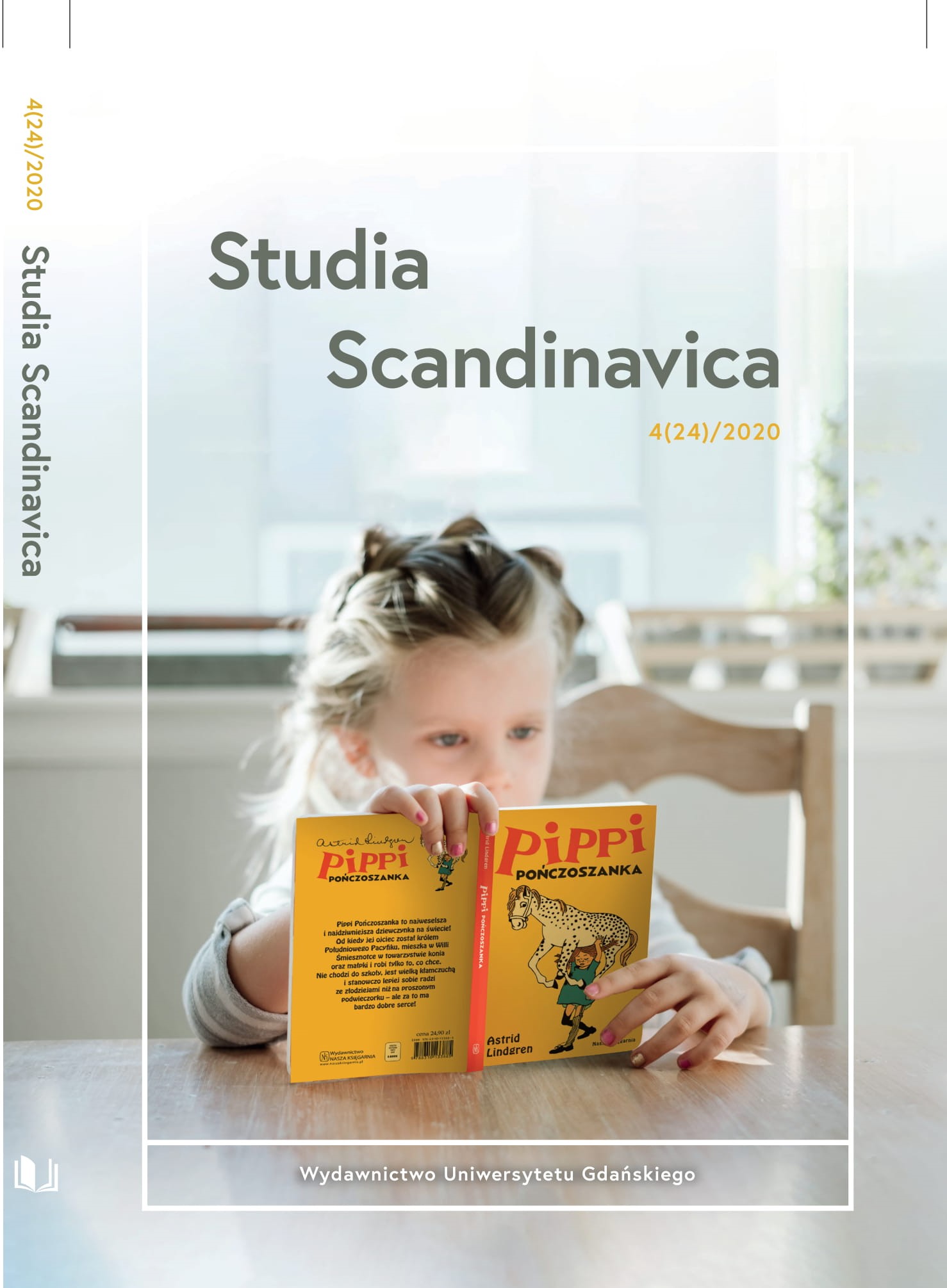The Philosophy of History in Henrik Ibsen’s early works
DOI:
https://doi.org/10.26881/ss.2020.24.05Słowa kluczowe:
nationality, Romanticism, Ibsen, historismAbstrakt
The early works of Ibsen – which concentrate on historical issues from the old Norwegian past, using material from sagas, folk-tales, and songs – give us a picture of an author who is focused on a national programme. In accordance with the Romantic philosophy of history (historism), Ibsen uses its main categories of causation and explanation of the national past, mainly positing individual ideas as a major shaping force of the course of history and the impact of great personalities. At the same time, Ibsen presents the path for Norwegians to build a strong and independent nation, and the conditions that have to be fulfilled for that to happen.
Downloads
Bibliografia
Berger, S. (2011). The Invention of European National Traditions in European Romanticism. In: S. Macintyre et.al. (eds.). The Oxford History of historical Writing, 1800–1945. Vol. 4. Oxford: Oxford University Press, s. 19–40.
Beyer, E. (1994). Henryk Ibsen. Transl. B. Danilszuk. Gdańsk: Wydawnictwo Gdańskie.
Bø, G. (1998). Nasjonalisme, skandinavisme og kristendom hos den unge Henrik Ibsen. In: I. Brohed (ed.). Nationalism och skandinavism i de nordiska folkkyrkorna under 1800-tallet. Lund: Lund University Press, s. 207–226.
Briggs A. and P. Clavin (1997). Modern Europe 1789–1989. A History of Europe. London: Longmann.
Daae, L. (1875). Fru Inger Ottersdatter og hendes Døttre. Historisk Tidsskrift 3: 224–366.
D’Amico, R. (2011). Historicism. In: A. Tucker (ed.). A Companion to the Philosophy of History and Historiography. Oxford: Wiley-Blackwell, s. 243–252.
Dawns, B.W. (1946). Ibsen. The Intellectual Background. Cambridge: Cambridge University Press.
Gil, T. (2011). Leopold Ranke. In: A. Tucker (ed.). A Companion to the Philosophy of History and Historiography. Oxford: Wiley-Blackwell, s. 383–392.
Grabski, A.F. (2000). Dzieje historiografii. Poznań: Wydawnictwo Poznańskie.
Ibsen, H. (1905). Letters of Henrik Ibsen. Transl. J. Nilssen Laurvik and M. Morison. New York: Fox, Duffield and Company.
Ibsen, H. (1911). The Works of Henrik Ibsen. Vol. 7–8. Transl. Ch. Archer and W. Archer. New York: Charles Scribner’s Son, https://babel.hathitrust.org/cgi/pt?id=iau.31858009741608&view=1up&seq=9 (access: 9.08.2020).
Ibsen, H. (1979). Brev 1845–1905, Ny samling. Vol. 1: Brevteksten. Oslo: Universitetsforlaget.
Ibsen, H. (2000). Samlede verker. Vol. 1. Oslo: Gyldendal.
Iggers, G. (2010). Introduction. In: L. von Ranke. The Theory and Practice of History. Transl. W.A. Iggers. New York: Routlegde.
Jæger, H. (1888). Henrik Ibsen 1828–1888. Et litterært Livsbillede. Kjøbenhavn: Gyldendal.
Koht, H. (1954). Henrik Ibsen. Eit diktarliv. Vol. 1. Oslo: H. Aschehoug & co.
Lorenz, Ch. (2011). Scientific Historiography. In: A. Tucker (ed.). A Companion to the Philosophy of History and Historiography. Oxford: Wiley-Blackwell, s. 393–403.
Moi, T. (2006). Ibsens modernisme. Transl. A. Øye. Oslo: Pax Forlag A/S.
Ording, F.R. (1927). Henrik Ibsens Vennekreds. Det Lærde Holland. Et kapitel av norsk kulturliv. Oslo: Grøndahl & søns boktrykkeri.
Schiffman, Z.S. (2011). The Birth of the Past. Baltimore: John Hopkins University Press.
Sokół, L. (1998a). Ibsen – mit osobisty. Konteksty. Sztuka ludowa 52 (3/4).
Sokół, L. (1998b). Peer Gynt jako wyzwanie. Dialog 43 (11).
Szelągowska, G. (1984). Narodowość i naród w romantycznych koncepcjach norweskiej szkoły historycznej. Przegląd Zachodni 40(1): 63–85.
Warren, J. (2004). The Past and its Presenters, an Introduction to Issues in historiography. London: Hodder & Stoughton Educational.
Woerner, R. (1895). Henrik Ibsens Jugenddramen. München: C.H. Beck

 Uniwersyteckie Czasopisma Naukowe
Uniwersyteckie Czasopisma Naukowe





